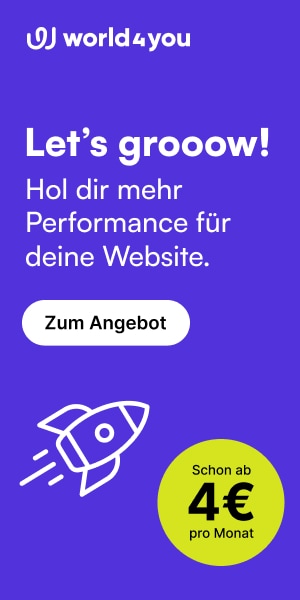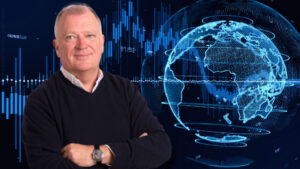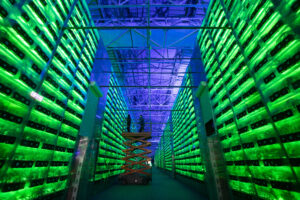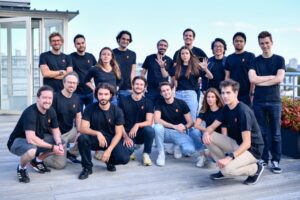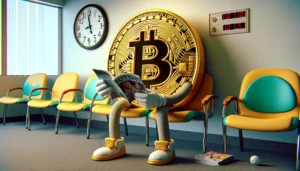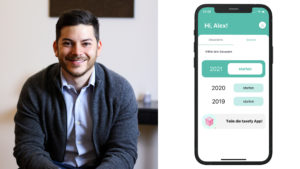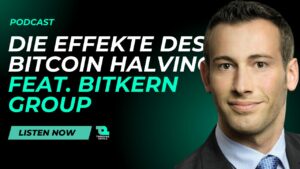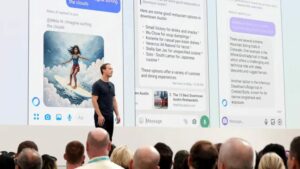The Big Reset with Vesko Kolev: How To Create The Right Environment For Meaningful Product Innovation in Bulgaria
The transition of the Bulgarian tech sector from an outsourcing destination to a hub for product development and innovation is one of the frequently discussed topics among forward-thinking technology founders and executives. But is the current crisis situation changing the game? Is there a chance for software service companies that are expected to be the hardest hit in the tech sector, to start thinking of their own products and creating IP that may, in the long run, turn them into exponentially growing businesses? Is it now the right time to lay more solid foundations for this transition or even accelerate it?
To look for answers, but also practical tips on starting the process, we talked to Vesko Kolev, the VP of Product at Progress. Vesko Kolev is a business and technology leader with 15 years of professional experience. As VP of Product, Developer Tooling, at Progress he is responsible for a team of 150+ software engineers, technical support engineers, product managers, product marketers, and UX designers, based in the US and Bulgaria. He joined Progress after the US company acquired the Bulgarian Telerik in 2014 in the biggest deal for the local tech sector. Besides being a leader in application development and empowering the digital transformation of organizations, Progress is a strong community builder, especially in Bulgaria. Several months ago, Kolev reached out to us with an article he had written about the process of developing meaningful products. In a later conversation, he shared his vision of an innovation-driven ecosystem that could be accelerated thanks to the accumulated knowledge and collaboration. This is why we reached out to him – to explore what are the lessons learned in Telerik and Progress that the whole ecosystem could use to step it up, especially in these challenging times.
Trending Topics: Before we dig deeper into the entrepreneurial mindset, I want to put things into a bit more context. So, we all know the big story of 2014, Progress acquiring Telerik, turning it into a big success story for the local system and we’ve been talking about that a lot ever since then, but in a way, I have the feeling, that we are not talking enough about what happened with that company and those people that turned to be part of Progress. I wanted to ask you to walk me briefly through the journey of the company ever since then.
Vesko Kolev: That’s a wonderful question to which I have to summarize 6 years. Thanks for it. (laughs) In Telerik, our mission and motto have always been to deliver more than expected so for us the acquisition has never been just a transaction. Yes, it was a great success, as you said, for the community and for the ecosystem. But at the same time, it has never been just a transaction for us. We want and wanted to be the force that helps Progress be more successful. Since the acquisition I think that we’ve managed to integrate very well, and the state that we are in is a testament of that. Our customers are happier than ever, our people and teams are more engaged than ever. I think the business is in a better position than ever. So to me, the whole journey was, on the one hand, moving the culture for both Progress and Telerik to the next level because as part of Telerik we are part of a startup and then scaleup and it is one thing to be there, but when you move to the next level, which is an enterprise, especially big US company that is publicly traded on the US stock exchange, is like next level. It is very interesting probably for the audience to share that a lot of things that have been started in the Telerik days have been amplified and improved further. For example, the culture of delivering more than expected has always been and is our guiding star.
I think it’s quite important that a Bulgarian company turned to one of the keys centers for Progress on a global scale.
Yeah, absolutely, I think that we are a great example of a company that can have a strategic, product development and go-to-market strategy created, fostered, and developed in Bulgaria, and that’s awesome.
Does becoming a part of a big corporation change somehow the mindset of the people?
The local national pride is still there. The products that we built are created here, discovered here, and the strategies are built here, they are our products in the end of the day. On that aspect, we didn’t change that much. Even further, I think that before, at Telerik, our goal has always been to satisfy customers and help them be better and excel. And this hasn’t changed. In the past we had investors today we have like investors on the stock exchange. So it’s like the same, very similar environment but is on the next level. In terms of the scale, I think that the complexity and the amount of people that are working on the business haven’t changed dramatically. We are structured in a company, in separate business units based on the specifics of the different businesses that they are in. And for example, the traditional Telerik business, which I’m part of, is pretty much the same and it feels the same.
Whereas the mindset has changed, I think that we’ve continued very aggressively to employ the ‘growth’ mindset. You’ve probably heard about this concept about ‘fixed’ versus ‘growth’ mindset and we are very well into it, into the growth mindset, because all the dynamics of the market are also evolving. It requires us to be very focused and we have to learn a lot of things and practice a lot of things, we can not just stay and do nothing, it’s like you have to develop yourself and upgrade your game daily. So, in my view, the fact that we are part of that company accelerated the growth, both of the people and the business and everything related to that.
Fixed versus growth mindset has been a topic of a previous conversation as well and I think it’s quite interesting to explore it a bit more in the corporate context since people usually don’t expect that from corporates.
I will try to quickly explain what it is to make sure we have one and the same understanding of it. This concept has been developed by a professor of psychology, called Carol Dweck. She distinguished 2 types of mindset, the fixed mindset and the growth mindset. In the essence of the distinction is how those different types of mindset perceive intelligence. The fixed mindset perceives intelligence as something you were born with, while a growth mindset perceives intelligence as something that you can develop.
What is the actual result of that thinking? With the fixed mindset when you make a failure it means – I made a failure, I am as smart as I am, therefore I cannot do anything about it, then I’m a failure. So, failing means “I am а failure”. While the growth mindset on the other side says you know I failed but that’s an opportunity to learn. It is like a completely different view of the world. It has a lot of consequences. It is very important to be aware of the concept in your capacity as a spouse, in your capacity as а parent, in your capacity as a colleague at work. I think it’s not related to startups or scaleups, it is related to everything. In the context of an enterprise, it’s very important to understand that, as an enterprise, we are composed of different subgroups that target sometimes one and the same, but sometimes different audiences. From the team perspective, we are entrepreneurs. Once the entrepreneurs are the ones that are outside the corporate, like startups owners or people that work in startups, or the corporate entrepreneurs. The essence of entrepreneurship is one and the same thing.
Entrepreneurial mindset and being entrepreneur, growth, and all those things are as much as clichés that we all use as the word innovation. And having in mind that Progress is an innovation hub, in a way, I wonder what do you think innovation actually is and what does it mean in your particular context, because that’s a word we all use and it doesn’t mean much?
That’s a very interesting and important question. I think it is important for each company to have a very good mental model or conceptual model about things like this. What does innovation mean for us? There are three types of innovation. Sustaining innovation, disruptive innovation, and efficiency innovation. And, again as a reminder to the people that might be aware of those concepts: sustaining innovation in its essence means how to make a good product better, how to make additional products for your existing audience. You have the market, you have the competition, you listen to the market, and execute. Disruptive innovation is innovation that creates a new market. It is the innovation that provides access to products that weren’t previously available for certain audiences. It has the power to start small, at the bottom of the market but through the time it becomes better and better in terms of capabilities that it has the power to disrupt the existing businesses. So, this is basically the second type of innovation that we have. The third is efficiency innovation, which means to think of ways to serve the same customers with the same product but with less, so you can invest more in the first two. Basically, we acknowledge the fact that things that were relevant yesterday and are relevant today are not what will make you successful tomorrow. This means we are very clear with ourselves that we have to continuously develop our playbook and continuously ask the question of where is the money tomorrow, not where is the money today. Because that is the actual question and in practice, this results in a continuous process where we learn with practice, we share this knowledge between each other and when you’re part of our team, and that’s one of the great things about being part of a company like ours, you have the visibility of, let say, 5, 6, 7, 10 different initiatives that are running at the same time. And there are a lot of experiments that are happening across those, so it is very easy to get access to all those results and you can leverage it in your context.
Can you give examples of those experiments you conduct?
It first starts with an idea. The first question is how you have a great idea. Then, once you have a good idea, how to validate it. So, the problem is the discovery and the validation and then you have to figure out who is the ideal customer, who should start from, and then how to discover a solution for that problem or need, or pain, or want. Then, how to scale that. We have experimented in all of those. For example, we have products that are being produced as a sustaining innovation for our existing audience. But we have products that are targeted at adjacent audiences. Sometimes when you produce a product that is within the .NET community and or the .NET ecosystem we have great brand power. But when we go to an adjacent audience we don’t necessarily have the ability to leverage the brand power of this brand. You have to build your brand power and find a way to communicate your product, your offering. It involves things like branding, like advertisement, like search engine optimization, etc. That’s one example of a great set of challenges. By the way, a lot of companies in the local ecosystem are having challenges with pretty much the same set of questions – how to bring my product to market in a more effective and efficient way.
The whole point is – if you have structured ways and models for the different parts of the product development and the go-to-market then you have the ability to accumulate knowledge, which can be shared beyond the specific product. I think that’s a very critical thing that we should all appreciate as a very powerful because I believe that this will be the way to significantly improve the success rate of the companies that are built and are about to be built in the local ecosystem if we manage to share those learnings.
You’re speaking about something like a playbook. Can you share some key learnings from your experience, because the whole reason we are doing that with The Big Reset and you participating in this game is to leverage on what we know and how the local ecosystem can make the next step and you have great examples and great learnings of how things could be done?
I think that the first and most important thing is that companies appreciate the difference between those 3 types of innovation. You cannot make disruptive innovation by using the processes that are suited and created for sustaining innovation. You have to have a completely different mindset. As an example – when you are in a sustaining innovation mode you have clear customers, you have clear requests from them, it’s about execution. If you try to apply the same process in disruptive innovation you’ll fail, because in disruptive innovation you have to understand that whatever you’re doing if it is a disruption it is noble by definition, so you have to discover it. And you should have planning that it is oriented around discovery and learning. If you say I am a company that is disrupting the world and I have these 12 months of the roadmap, I will never invest in you. Why? Because that’s impossible. It depends on your scale. If you’re part of a big company, it is very important to explain to the executives, like me, that this is different than the other one. Otherwise, you will be asked to deliver things that are impossible to be delivered. It is impossible to give the market sizing when the market doesn’t exist. But if you don’t know what the right questions in the right context are, then you will fail. If I have to conclude the first advice from the playbook – make sure that you understand what is the game that you’re actually trying to play, know what the rules are. And one thing that we appreciate very much, and it is part of our culture – you know, for whatever reason, data is available only for the past. The question for everyone’s how to predict the future with higher probability, now to pick your moves in a way that increases your chance for success. That’s the whole purpose of science. It helps you predict that when you throw this mouse up it will fall down. We are employing science for all those things subconsciously. I think that we have to appreciate that science is the only way, in the structured knowledge, to achieve success on purpose, not by accident. I think if you talk to every successful entrepreneur, he or she will tell you – my goal is just to repeat it, I want to prove to myself that it wasn’t an accident. The way to make it on purpose is by employing science. The last thing I want to emphasize, not that there are a lot of others, will be the mindset. Make sure that you really employ the growth mindset.
You just said to understand the game you’re playing and employ science to understand it even better and we are right now in a very strange situation where predictability is quite hard and I don’t know whether someone understands that game. What would be your advice in such a situation and how does it change the game for you as a company, as well?
Unfortunately, COVID impacted a lot of us in different ways, both professionally and personally. I’d start with the second part of the question – how it has impacted us as a company. Fortunately enough, our processes are designed in a way that they are distributed by design. We didn’t have any significant challenges with switching to work from home. And to your first question – how we can predict what will happen. I think there are a few things that people like Elon Musk, Peter Thiel, and others are using as a way of thinking. We are also trying to employ it as much as we can in practice. I think that employing first principle thinking helps in those situations a lot. But before employing such things I think it is very important for every individual and company to basically think about how they are looking at the current situation. You know the famous saying about the lemons and the lemonade. I will use another angle of a similar quote that I know from Vassil Terziev, one of the founders of Telerik: “Pain or setbacks are inevitable, but suffering is a choice.” The best question I think everyone should ask themselves is – what chance this unique situation is providing us? I think it’s enough to ask yourself how to survive. The question should be more ambitious. How to get out of it stronger? I know it is a cliché but it is very powerful – you are as big as your dreams. I will paraphrase it and say you’re as big as your goals. So, set goals that are being enough that inspire you and your team and try to achieve them even in those circumstances. Appreciate that, on the one hand, there are challenges but on the other there are opportunities. We all know that the good entrepreneurs are the ones that can leverage such a situation in good faith.
We are talking about challenges but also opportunities all the time and given the current COVID situation a lot of trends are accelerating and new trends are emerging, many sectors will digitize and we may become better from the crisis, but what does it mean, translated in the context of the local ecosystem. Is it probably now the right time and is that crisis going to catalyze this ongoing transition from outsourcing to a product-oriented ecosystem?
This is actually one of the things that are very near and dear to my heart. I think one of the most important things is to make that transition from an outsourcing destination to a set of product companies. The reason for that is very clear. We have to find a way to unlock further the potential that we have and to leverage this potential in the best possible way and while the outsourcing era played its role and helped to be where we are, we should move to that other part. Instead of just selling people that are working, we should create and sell IP. And instead of having margins that are linear to the amount of people that are working, to move to products that are providing opportunities for exponential financial growth.
Probably a lot of outsourcing companies right now struggle, probably they don’t know how to fill the time of their employees. On the one hand, they can say “Oh, God this is the worst time in the universe”, or “Listen, up to now we are delaying that transition to become a product company because you have enough good cash flow to live a good life. But right now that has changed.”


